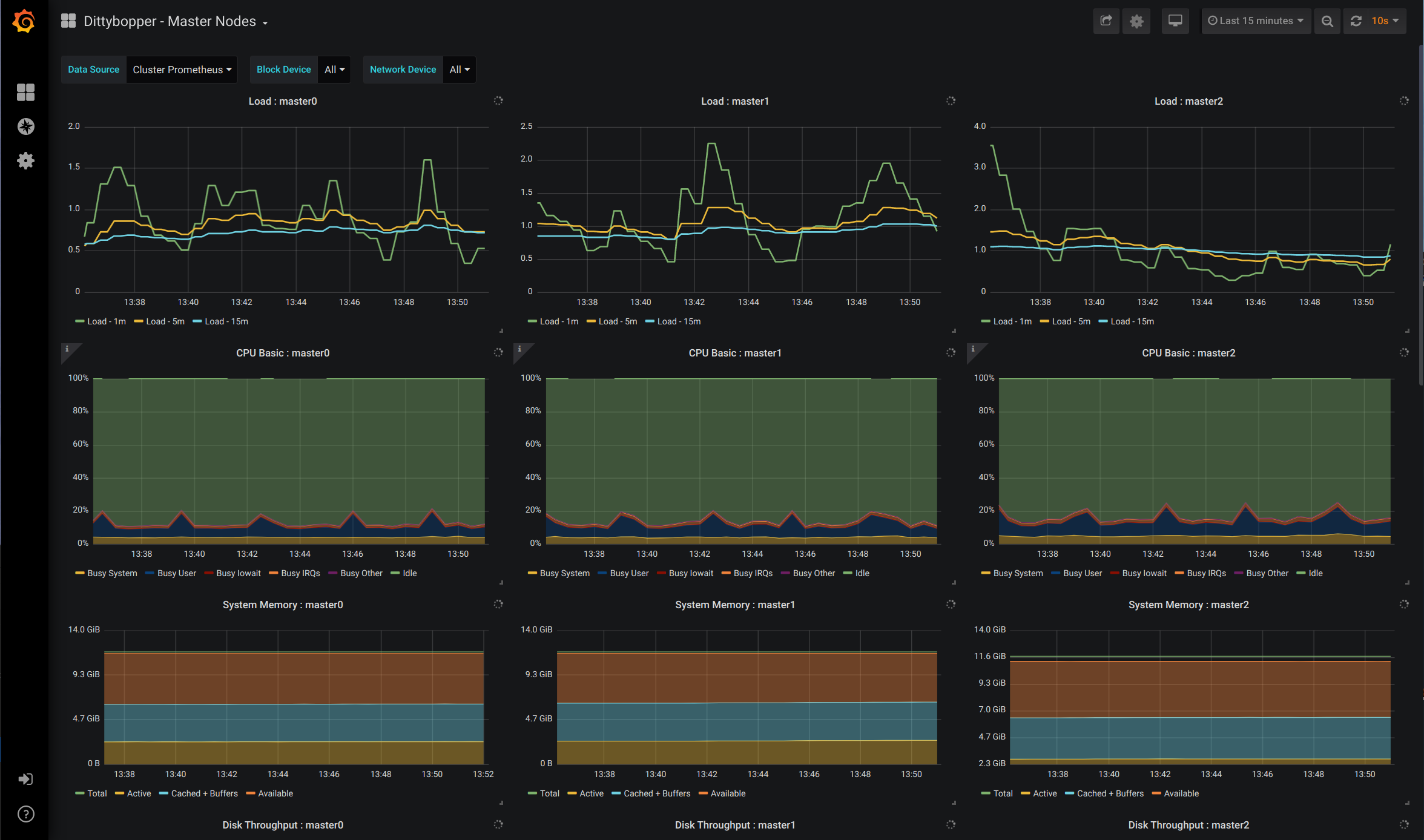Dittybopper
whatis
Dittyboppter is a quick-and-dirty way to deploy system-level submetric monitoring with Grafana in an OpenShift 4 environment. It deploys a stand-alone mutable Grafana pod with default dashboards to monitor things like CPU, memory, network, and disk activity. There are other dashboards available in arsenal, and the deployment can be customized with your own dashboards. The Grafana charts expect to receive metrics from an existing Prometheus deployment and node exporters.
Getting Started / Prerequisistes
Right now Dittybopper has a number of FIXMEs that need to be addressed before it will be more portable across k8s/OpenShift environments. It should generally deploy out-of-the-box with OpenShift 4. Other environments will likely have a prerequisite to first stand up a Prometheus pod, and the Dittybopper scripts and templates will need adjustment accordingly. The default dashboard included via arsenal/system-metrics-dashboards/grafana/master_nodes.json is currently designed for a 3-master OpenShift 4 deployment.
The deploy.sh script also requires jq to be installed on the system it is being run from.
Contribute
Pull requests are encouraged. If you find this tool useful, please help extend it for more use cases.
Deploy
Deploy Grafana on OpenShift Cluster with Dashboards
$ git clone https://github.com/cloud-bulldozer/dittybopper.git
$ cd dittybopper
$ ./deploy.sh [-c <kubectl_cmd>] [-m <host1> <host2> <host3>] [-n <namespace>] [-p <grafana_pwd>]
See ./deploy.sh -h for help.
Simply running ./deploy.sh with no flags will assume OpenShift, the dittybopper namespace, and admin for the password.
Import Dashboard
This will import a dashboard (json) into an existing Dittybopper Grafana deployment. The dashboard path can be either a local file or a URL beginning with http.
$ ./deploy.sh -i <path_to_dashboard_json_file>
Delete Grafana Deployment
$ ./deploy.sh -d
